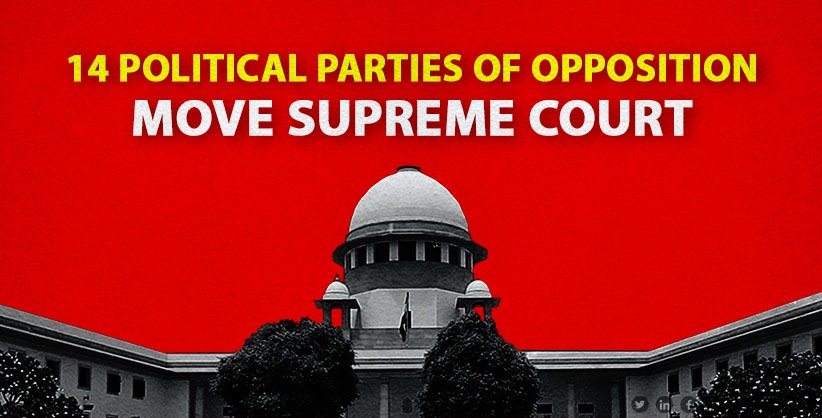SC to hear plea on April 5
NEW DELHI: A total of 14 opposition political parties led by Congress have approached the Supreme Court alleging misuse of the CBI and the Enforcement Directorate, as these agencies were increasingly deployed in a selective and targeted manner with "a view to completely crush political dissent and upend the fundamental premises of a representative democracy".
They also sought laying down of guidelines prospectively for governing the arrest, remand, and bail of persons in offences, which may or may not be punishable with imprisonment for above seven years, not involving serious bodily harm, and excluding homicide, rape, terrorism etc.
Senior advocate Abhishek Manu Singhvi on behalf of the parties mentioned the matter before a bench led by Chief Justice of India D Y Chandrachud for urgent hearing.
The court fixed it for consideration on April 5.
The petition has been drawn and filed by advocate Shadan Farasat, Adv and settled by senior advocate Dr Abhishek Manu Singhvi.
The petitioners political parties are INC, DMK, RJD, BRS, Trinamool Congress, AAP, NCP, Shiv Sena (UBT), JMM, JD(U), CPI(M), CPI, Samajwadi Party, J&K National Conference).
The plea claimed all these parties together represented 45.19% of the votes cast in the last State/UT Assembly Elections, and 42.5% of the votes cast in the 2019 General Elections, and were in power in 11 States/UTs.
The plea also cited statistics demonstrating "the shocking and unconstitutional state of affairs".
It claimed there is a clear trend of using ED raids as a tool of harassment, with the action rate on raids i.e. complaints filed pursuant to raids reducing from 93% in 2005-2014, to 29% in 2014-2022.
"So far, only 23 convictions under the Prevention of Money Laundering Act, 2002 have been secured, even as the number of cases registered by the ED under the PMLA have risen exponentially (from 209 in 2013-14 F.Y. to 981 in 2020-21, and 1,180 in 2021-22)," it said.
Between 2004-14, of the 72 political leaders investigated by the CBI, 43 (under 60%) were from the Opposition of the time. Now, this same figure has risen to over 95%, it said, contending the same pattern is reflected in EDs investigations as well, with the proportion of Opposition leaders from the total number of politicians investigated rising from 54% (before 2014) to 95% (after 2014).
The plea sought laying down of guidelines, saying as for arrest and remand, the triple test (whether a person is a flight risk, or whether there is a reasonable apprehension of the tampering of evidence or of the influencing/intimidation of witnesses) should be used by police officers/ED officials and courts alike for arrest of persons in any cognizable offences except those involving serious bodily violence.
Where these conditions are not satisfied, alternatives like interrogation at fixed hours or at most house arrest be used to meet the demands of investigation, it added.
As for bail, the petitioners sought a direction that the principle of bail as rule, jail as exception should be followed by all courts throughout, especially in cases where non-violent offences are alleged, and that bail should be denied only where the triple-test is met.
Where special laws such as PMLA with stringent bail conditions are concerned, the petitioners sought a direction that such bail provisions should be harmonised with Article 21 of the Constitution.
As such, therefore, where it appears that the trial is unlikely to complete within 6 months, the accused should be released on bail even under special laws unless the conditions in the triple-test are not fulfilled. In conclusion, the Petitioners sought these guidelines to fulfil and realise the guarantee of personal liberty entrenched in Article 21 of the Constitution, "for all citizens, including those targeted for exercising their right to political dissent and for performing their duties as the political opposition".









